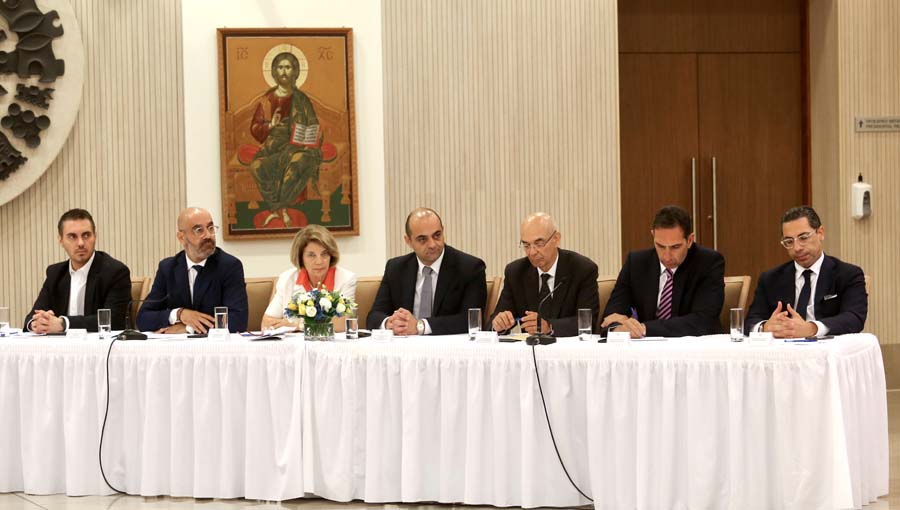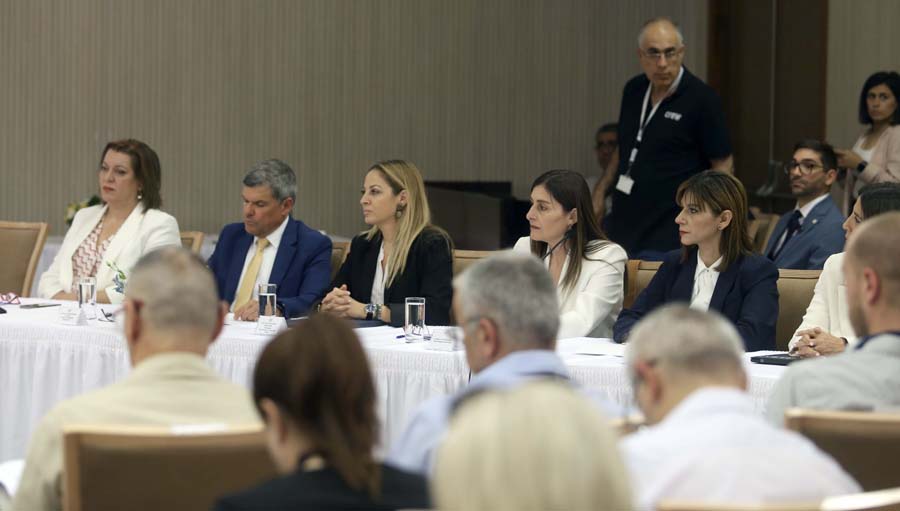

Marina Economides
Flanked by his cabinet and through a 24-page document, the President of the Republic presented the program and actions of the government from his first day in office until today. It was a commitment he made during his pre-election campaign to be accountable for the first 100 days of his governance to the citizens who elected him. And the truth is that he proceeded with a detailed presentation of the progress made by each ministry so far. Among the news was the announcement of a 5% increase in the pensioners' allowance with retroactive effect from June 1, 2023, the implementation of Park&Ride in the parking areas of the GSP Stadium, the appointment of a Deputy Minister responsible for European Affairs in the near future, as well as the meeting he had with the Turkish Cypriot leader.
The shadow cast by the appointments
A significant shadow, however, looms over the progress of the government under Nikos Christodoulides' leadership, primarily due to unfortunate appointments and the preceding events leading up to the Cabinet formation. Political parties exerted vetoes and applied pressure to ensure the appointment of their own candidates. Nikos Christodoulides refrained from making explicit references to this matter, instead acknowledging mistakes and omissions. He also presented the establishment of a secretariat to monitor government work, the creation of an internal control unit within the presidency of the Republic, and the preparation of a draft law concerning government members' advisors and collaborators. He did not find it necessary to say mea culpa, even when prompted, regarding the events that tarnished the government's image through these appointments. Nevertheless, he stated that if the need arises, he will address any culpability at a later time.
A constructive ambiguity
Nevertheless, "K" called upon Nikos Christodoulides to provide answers regarding the reinforcement of the perception in society that the "new" has worn off prematurely. This perception arose not only because of the unfolding of a tumultuous behind-the-scenes party bargaining for the composition of the Cabinet, while he pledged to appoint new, independent successful Cypriots from abroad. He was asked by "K" to clarify whether this represents a continuation of the old, considering that despite his commitment to combat corruption and strengthen meritocracy, he appointed associates within his presidential circle and made mistakes in their appointments. However, he chose to evade a substantive response, stating that if there had been a party compromise, then the parties that supported his candidacy would continue to support him in Parliament. Regarding the issue of associates, he mentioned that when he assumed office, the Christodoulides government operated within the existing framework. He noted, "It is the first time that a specific proposal governing appointments has been made."
He made sure to compare the situation of his own associates with that of the President of the Parliament, Annita Dimitriou, who hired a student. As he stated, "In our case, no relationship is formed that would give rise to the phenomena of nepotism that occurred in the past." However, he did not comment on the fact that he, who invoked the new and different, followed the same path as previous administrations that appointed individuals who did not meet the criteria.
However, it should be noted that when the President was asked to comment on the possibility of a reshuffle, he stated that a reassessment of the work and, consequently, an examination of the actions of the ministers will take place in September, something that Deputy Minister Irene Piki revealed in an interview with "K".
Regarding the proposal for increased involvement of the EU in the Cyprus issue, Nikos Christodoulides mentioned that there are specific proposals and actions, with particular emphasis on providing incentives to Turkey through European relations. Although he extensively referred to his previous contacts with European officials and leaders of other member states, he did not mention any contacts or communication he may have had with the UN Secretary-General, nor did he discuss whether there is a specific plan to strengthen relations with the Turkish Cypriots. He clarified that he is ready to continue from where they left off in Crans Montana, but highlighted that he does not fully agree with the six points of the Guterres Framework. Of course, he did not explain the plan to halt the works in Varosha, the reasons why Nicosia has placed all its hopes on EU involvement, or if there is any change in the credibility of the current government on the European stage compared to the Anastasiades government, which Nikos Christodoulides praised.
The positive aspects of the government certainly include the implementation of the Cost of Living Allowance (CoLA) by Labour Minister Yannis Panagiotou, although there are already criticisms that high paid civil servants are favored over low paid ones, the KTIZO program of Interior Minister Konstantinos Ioannou, the abolition of the purchase of services scheme by the Ministry of Education and the creation of the Deputy Ministry of Immigration. It remains to be seen whether this ministry will manage to have an effective and at the same time humane approach to the whole issue or whether it will be a continuation of the policy of Nikos Nouris, which Nikos Christodoulides praised.
In conclusion, the first 100 days of governance are not enough to judge the work of a government. Time is needed for a government to find its footing and present substantial work. It is positive if the President's frequent accountability to the citizens leads to transparency. It is also positive if the President is willing, within this framework of accountability, to answer difficult questions rather than confining himself to appearances and promises.
[This article was translated from its Greek original]































